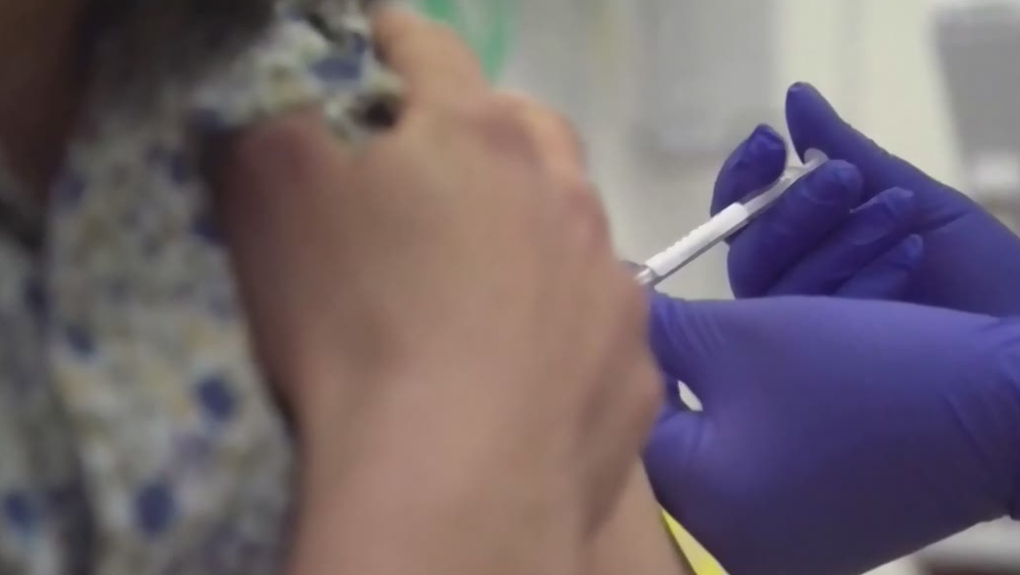Requiring proof of vaccination allowed in 'limited circumstances,' says B.C.'s human rights commissioner

There are "limited circumstances" in which businesses and service providers can require people to provide proof of vaccination, according to new guidance from B.C.'s human rights commissioner.
Kasari Govender's guidance, published online this week, stresses that vaccination status policies should only be implemented if "less intrusive means of preventing COVID-19 transmission are inadequate for the setting and if due consideration is given to the human rights of everyone involved."
The document doesn't outline specific scenarios that would justify a proof-of-vaccine requirement, but does indicate any such policies should be based on evidence of a transmission risk in a particular setting.
In approaching the thorny issue, Govender weighed the importance of upholding individual rights while also protecting the collective rights to health and safety – which the commissioner acknowledged has been a difficult balancing act throughout the COVID-19 pandemic.
"No one's safety should be put at risk because of others' personal choices not to receive a vaccine," the guidance reads.
"Just as importantly, no one should experience harassment or unjustifiable discrimination when there are effective alternatives to vaccination status policies."
The commissioner said any policies that treat people differently based on vaccination status must "remain consistent" with the B.C. Human Rights Code, which offers protections to a number of classes, including people with a disability.
Vaccination status policies should also be time-limited – meaning they are implemented for as short a period as possible, and regularly reviewed based on health advice and the state of the pandemic – and be "proportional to the health and safety risks they seek to address," according to the document.
The commissioner said business and service providers should also keep in mind that any collection, use or disclosure of personal health information such as vaccination status must abide by privacy laws.
Last week, while B.C. was relaxing visitation rules at long-term care homes, provincial health officer Dr. Bonnie Henry said the government would not be requiring workers in those facilities to get vaccinated against COVID-19.
Those employees will need to continue wearing masks and adhering to other prevention measures such as "being tested for COVID-19 using rapid tests three times a week," Henry said.
Henry also announced plans to issue a new public health order requiring long-term care homes to provide the names and personal health numbers of all staff, residents and volunteers, which will be used to determine vaccination rates at each facility and outbreak risks. '
Health officials have long warned that seniors are much more vulnerable to falling seriously ill or even dying after catching COVID-19.
To read the full document, "A human rights approach to proof of vaccination during the COVID-19 pandemic," click here.
CTVNews.ca Top Stories

Aviation experts say Russia's air defence fire likely caused Azerbaijan plane crash as nation mourns
Aviation experts said Thursday that Russian air defence fire was likely responsible for the Azerbaijani plane crash the day before that killed 38 people and left all 29 survivors injured.
Police identify victim of Christmas Day homicide in Hintonburg, charge suspect
The Ottawa Police Service says the victim who had been killed on Christmas Day in Hintonburg has been identified.
Teen actor Hudson Meek, who appeared in 'Baby Driver,' dies after falling from moving vehicle
Hudson Meek, the 16-year-old actor who appeared in 'Baby Driver,' died last week after falling from a moving vehicle in Vestavia Hills, Alabama, according to CNN affiliate WVTM.
Boxing Day in Canada: Small retailers fear big shopping day won't make up for tough year
It’s one of the busiest shopping days of the year: Boxing Day sees thousands of people head to malls and big box stores to find great deals. But it's not so simple for smaller shops.
Raised in Sask. after his family fled Hungary, this man spent decades spying on communists for the RCMP
As a Communist Party member in Calgary in the early 1940s, Frank Hadesbeck performed clerical work at the party office, printed leaflets and sold books.
Sinkhole prompts lane closures on Interstate 80 in New Jersey
A sinkhole that opened up Thursday along Interstate 80 in northern New Jersey forced authorities to close the heavily travelled highway's eastbound lanes.
Cat food that caused bird-flu death of Oregon pet was distributed in B.C.: officials
Pet food contaminated with bird flu – which killed a house cat in Oregon – was distributed and sold in British Columbia, according to officials south of the border.
Police in New Brunswick investigating Christmas Eve sudden death
An unconscious individual was found in the 600-block area of Lancaster Avenue early Christmas Eve morning, and was later pronounced dead at a hospital.
Spending the holiday season alone this year? How to make the most of it
Spending the holidays alone can feel lonely or empty, but it doesn't have to be that way.
































